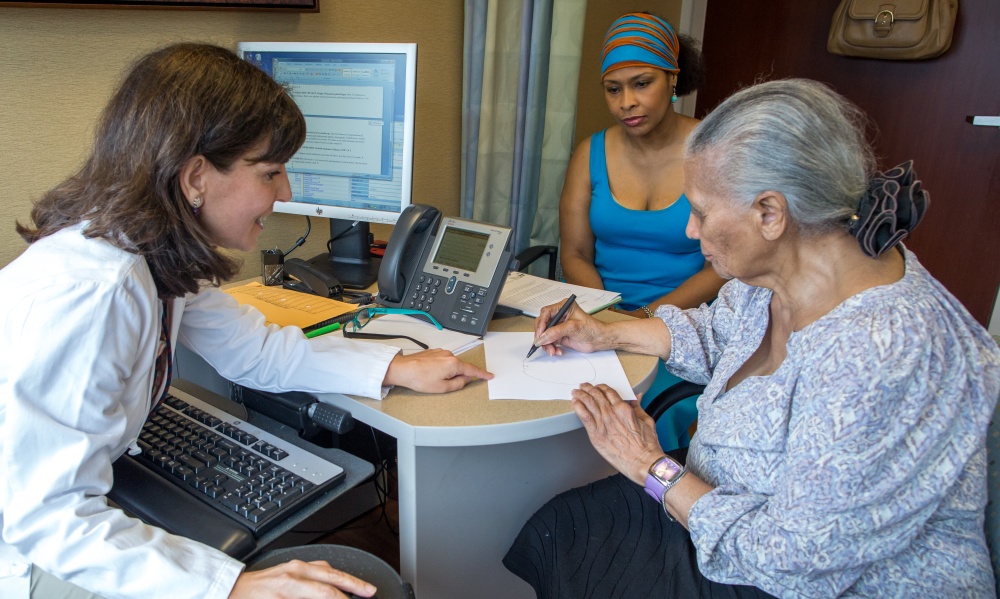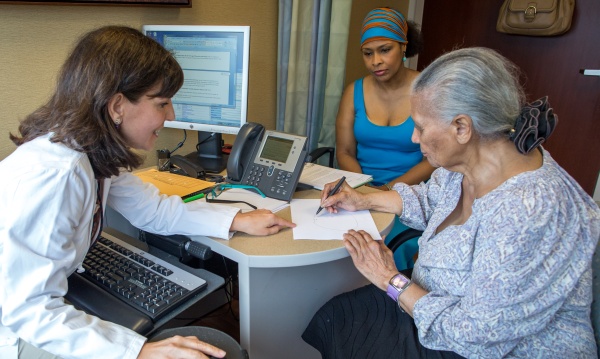Memory Disorders Division


Contact Information
Memory Disorders Division
Wang Ambulatory Care Center
15 Parkman Street
8th Floor, Suite 835
Boston,
MA
02114
Phone: 617-726-1728
Fax: 617-726-4101
Memory Disorders Coordinator Phone: 617-726-1728
Mailing Address
Department of Neurology
Memory Disorders Unit
Mail code: WACC 715
Massachusetts General Hospital
55 Fruit Street
Boston, MA 02114
Explore This Treatment Program
Overview
The Memory Disorders Unit and the Frontotemporal Disorders Unit at Massachusetts General Hospital are tertiary care outpatient clinics located on the eighth floor of the Wang Ambulatory Care Center (WACC) of the hospital. We have several specialized services: the Memory Disorders Unit (MDU), the Frontotemporal Disorders Unit (FTD), the Normal Pressure Hydrocephalus clinic, and the Lewy body Dementia clinic. Each unit’s clinical staff consists of board-certified neurologists, geriatric psychiatrists, nurses and social work resource specialists who are fluent in a variety of languages, including French, Hebrew, Italian and Spanish. Complimentary translation and interpretation services in a variety of languages – including sign language – are provided by trained and certified personnel of the Mass General Medical Interpreter Services at all times.
Patients receiving memory care are treated with compassionate, courteous and professional care throughout their diagnostic, consultation and follow-up treatment visits. We require that all patients attend their appointments with a close family member or an individual who can provide reliable information about them. The memory care services that we provide include:
- Comprehensive medical and neurologic assessment, diagnosis and follow-up on pharmacological interventions for dementia symptoms
- Psychiatric evaluation, monitoring and referral to specialists on an “as-needed” basis
- Referral to the Mass General Psychology Assessment Center for neuropsychological examinations and follow-up evaluations
- Referral to the Mass General Genetics Program for genetic counseling for rare cases of inherited memory disorders
- Support groups and social service consultations for family members and caregivers
- Participation in cutting-edge clinical trials and observational studies conducted by the Massachusetts Alzheimer’s Disease Research Center
- Coordination with the International Patient Center for patients from other countries who seek medical care at Mass General
– patient in the Memory Disorders DivisionDr. Gomez-Isla has always been a favorite doctor of ours. She is knowledgeable in her field, tactful, warm, and makes helpful suggestions on next steps. She has been generous with her time, even though she has significant additional duties beyond seeing patients. We would recommend her to anyone.
Update on Lecanemab and Donanemab
The US Food and Drug Administration (FDA) approved donanemab (Kinsula) on July 2nd, 2024, for the treatment of early stages of Alzheimer disease. Donanemab joins lecanemab (Leqembi) as the 2nd FDA-approved anti-amyloid antibody treatment approved for Alzheimer disease in the past year.
Learn more about the Mass General Brigham Alzheimer Therapeutics Program
Research
Our clinician-scientists are at the forefront of cutting-edge research to improve memory care, and partner with our patients and research participants in order to discover effective treatments for Alzheimer’s disease and related forms of dementia. Please visit MADRC.org to learn more about our current research opportunities, or call 617-643-5200 to find out how to join us in the fight against these brain diseases.
Study of Memory and Aging
Estamos buscando adultos mayores de 65 años para participar en nuestro estudio para entender cómo se desarrolla la pérdida de memoria en el cerebro humano. Aprende más.
We're recruiting Spanish-speaking adults over 65 to participate in our study to understand how memory loss develops in the human brain. Learn more.
Research on Memory and Aging in Black Adults
We encourage African American/Black adults over age 50, with or without memory concerns, to join our ongoing study of memory and aging. Learn more.
MADRC Resources
The MADRC leads cutting-edge research and provides resources to professionals, people with dementia and their families. Disponible en Español.
Events
Upcoming events at the MADRC.
Join a Research Study
Participate in research to help us understand, prevent and cure memory disorders.
Patient & Caregiver Resources
Resources and support services for people with AD and their families.
Brain Health
A guide to maintaining brain health and preventing memory disorders before they start.
Road Map to Prevention
This booklet covers how we age over time and what you can do to prevent Alzheimer's.
Road Map to Diagnosis
A guide to understanding the difference between dementia and normal aging or forgetfulness
Road Map to Caregiving
A guide to help caregivers support both themselves and those for whom they are caring.
Road Map to Research Participation
You can help find treatments or a cure for Alzheimer’s disease and related dementias.
Road Map to Behavior Management
Develop a plan to support your loved one with behavioral symptoms associated with AD.
Road Map to Social Engagement
Staying socially engaged can help protect against cognitive decline.
Patient Resources
You may also find the following resources from other groups helpful.
What Is Dementia?
Information from the Alzheimer’s Association
Alzheimer’s and Dementia
Details about Alzheimer’s and dementia from the Alzheimer's Association
FTD Disorders
Information from the Association for Frontotemporal Degeneration
What Is Lewy Body Dementia?
Information from the Lewy Body Dementia Association
What Is Vascular Dementia?
Vascular dementia details from the Alzheimer's Association
¿Qué es la demencia?
Información de la Alzheimer’s Association
¿Qué es el Alzheimer?
Información de la Alzheimer’s Association
Sobre Demencia Frontotemporal
Descripción de la enfermedad, de la Asociación de Demencia Frontotemporal
Sobre Demencia por Cuerpos de Lewy
Por la Lewy Body Dementia Association
¿Qué es la Demencia Vascular?
Por MedlinePlus
-
![]()
- Department of Neurology
-
![]()
- Director, Frontotemporal Disorders Unit
- Staff Behavioral Neurologist
-
![]()
- Professor of Neurology, Harvard Medical School
- Chief, Division of Memory Disorders, Mass General Brigham
- Associate Director, Massachusetts Alzheimer Disease Research Center (MADRC)
-
![]()
- Director, Lewy Body Dementia Unit
-
![]()
- Associate Professor of Neurology, Harvard Medical School
- Associate Director, Mass General Brigham Telestroke Program
Stay in Touch: Subscribe to Our Newsletter
Subscribe to our newsletter to get updates & key information on research, care and prevention of memory disorders.
Dementia Caregiver Support Program
The DCSP helps to reduce the burden of Alzheimer’s disease with family-oriented care, improving the quality of life for patients and caregivers alike.
Treating the Whole Family - Memory Disorders Care at Mass General Hospital
Memory Disorders Unit Director Teresa Gomez-Isla, MD, speaks about memory care and brain health.
Over 40 Years of History
Mass General has decades of experience treating and studying memory disorders.
Support our work
Join us on our quest to find a cure for Alzheimer’s disease and related dementias, while providing comprehensive care of patients and families living with these devastating disorders.








